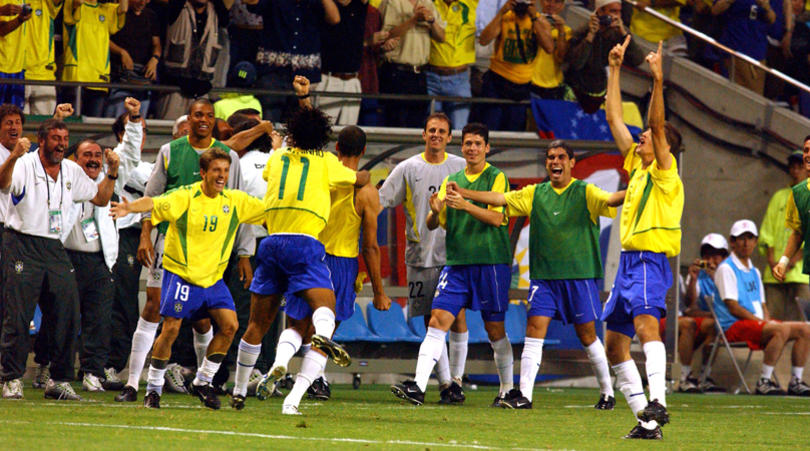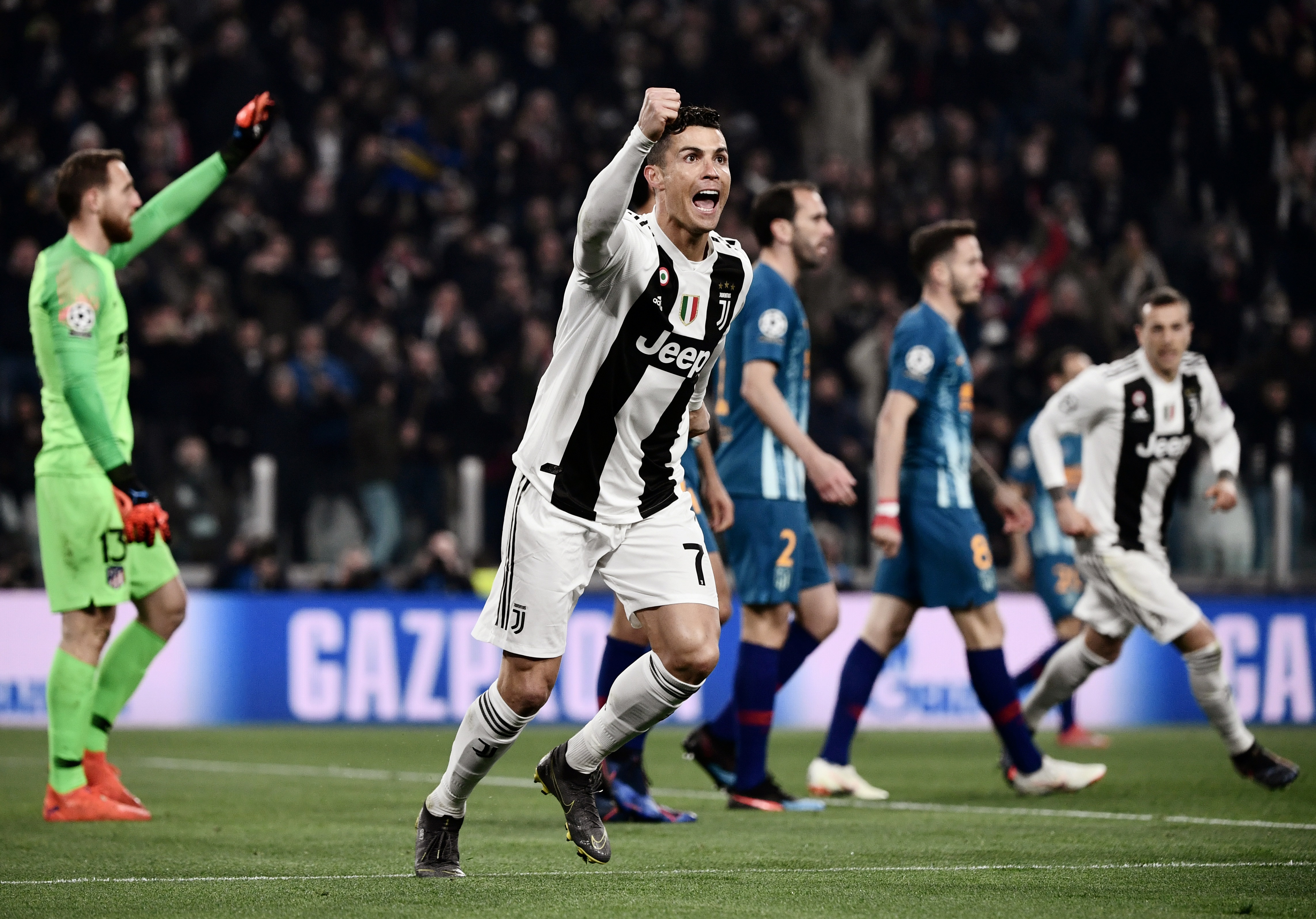Where are they now? Arsenal's 2006 Champions League runners-up
Pires, Henry, Cole and Mr Invincible: James McNicholas looks back at the first Gunners side to reach the final of European football's top club competition
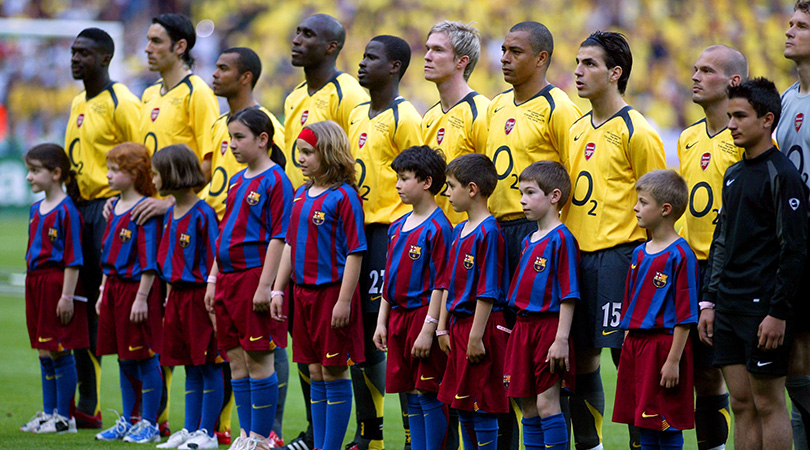
Jens Lehmann
Since his second retirement, Lehmann has enjoyed a varied career as a pundit in England and Germany
Arsenal’s fiery German goalkeeper was sent off just 20 minutes into the final, which felt particularly cruel given that his semi-final penalty save from Villarreal’s Juan Roman Riquelme had played such an instrumental part in helping Arsenal reach Paris.
Lehmann remained with Arsenal until 2008, when he moved to Stuttgart on a free transfer having lost his place to Manuel Almunia. He retired from playing after two years at the Mercedes-Benz Arena, but there was a twist in the tale: an injury crisis at Arsenal in March 2011 led to Lehmann donning the Gunners gloves once again. During a 3-1 victory over Blackpool in April 2011, the 41-year-old Lehmann became Arsenal’s oldest player of the Premier League era.
Since his second retirement, Lehmann has enjoyed a varied career as a pundit in England and Germany. He has also completed his UEFA A coaching license, and has already spent a couple of short spells training Arsenal’s youth teams. Lehmann is not currently attached to a club, but has indicated that in the long term he would like to assume a role as a sporting director.
Emmanuel Eboue
His Arsenal career suffered a setback when Wenger installed Bacary Sagna as first-choice right-back in 2007
The year 2006 was a breakout one for Eboue. An injury to Lauren opened the door for the Ivorian, who made such an impression with his marauding runs from right-back that Arsene Wenger compared him to Brazilian legend Garrincha.
His Arsenal career suffered a setback when Wenger installed Bacary Sagna as first-choice right-back in 2007; Eboue was repurposed as a winger, but his confidence never quite recovered. He remained a hugely popular figure on the training ground, though, but often frustrated the fans - culminating in him being booed during a match against Wigan in December 2008.
Get FourFourTwo Newsletter
The best features, fun and footballing quizzes, straight to your inbox every week.
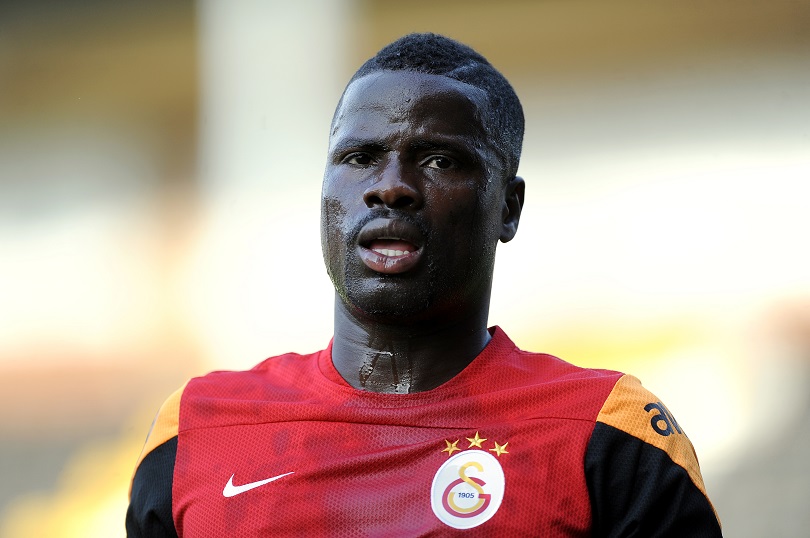
Eboue clung on at Arsenal until 2011, when he joined Galatasaray. After failing to win silverware throughout his time in north London, he won two league titles, the Turkish cup and two Turkish Super Cups in the space of three years.
Having been released at the end of his contract, he struggled to find a new club. In March 2016 he signed for Premier League strugglers Sunderland, but within weeks was handed a one-year ban from all football activities for failing to pay a former representative. Sunderland responded by releasing him, and Eboue has since spent an anguished 12 months on the sidelines. The suspension will soon expire and, at 33, he could still look to add a final chapter to the story of his career.
Kolo Toure
Since 2013, Toure has become an acolyte of Brendan Rodgers, signing for him at Liverpool and then last summer at Celtic
Toure and Sol Campell had formed a formidable partnership in the heart of the Arsenal defence, which helped the Gunners to an unbeaten season in 2003/04. The Champions League final was Campbell’s last game for the Gunners, however, while Toure struggled to strike up an understanding with his replacement, William Gallas.
In 2009, he was sold to Manchester City, where he won the FA Cup in 2011 and the Premier League title a year later. Since 2013, Toure has become an acolyte of Brendan Rodgers, signing for him at Liverpool and then last summer at Celtic. In Scotland, he could be set to become an ‘Invincible’ one again, as Celtic are yet to lose a league game this term.
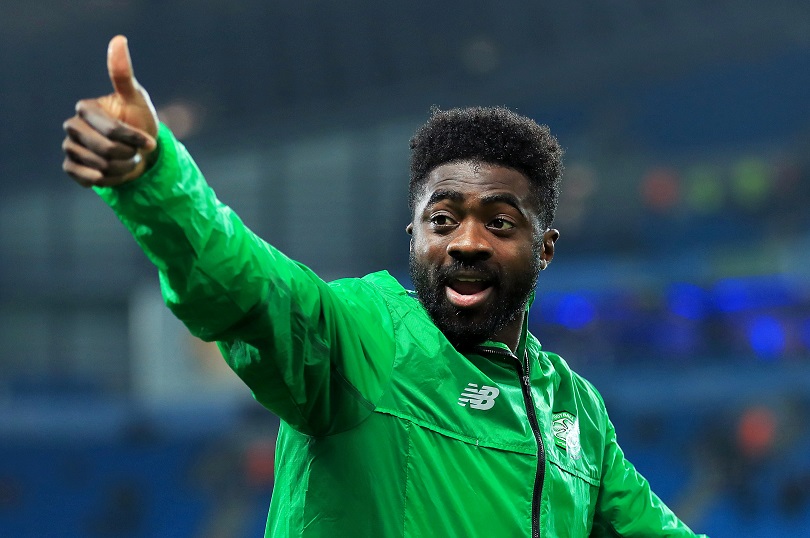
Sol Campbell
After dabbling with the idea of entering politics, Campbell has now begun his coaching career
For a while, it looked as if the Champions League final might prove the perfect farewell for Campbell. The centre-back powered home a first-half header to put Arsenal ahead, and played a crucial role in the rearguard action that saw the Gunners come so close to landing Europe’s biggest prize.
But it wasn’t to be. Arsenal eventually succumbed to defeat and Campbell left the club by mutual consent in search of a fresh challenge. He found that on the south coast, with his three years at Portsmouth capped by an unlikely FA Cup triumph.
Campbell then took the startling decision to join League Two Notts County, but he walked out on the club just three days after his debut. He then spent several months out of the game before resurfacing… at Arsenal.
Like Lehmann, Campbell was offered a chance to resurrect his career at the Emirates Stadium and played for the club in the second half of the 2009/10 campaign, impressing enough to earn another move to Newcastle - his final club.
After dabbling with the idea of entering politics, Campbell has now begun his coaching career, taking up the role of assistant manager of the Trinidad and Tobago national team.
Ashley Cole
The England international was a superb acquisition for the Blues, spending eight seasons at Stamford Bridge
Cole was another who played his final Arsenal game in Paris. That summer, he left the club in controversial circumstances, forming part of a swap-deal with Chelsea’s Gallas.
The England international was a superb acquisition for the Blues, spending eight seasons at Stamford Bridge and winning pretty much every available prize. In July 2014, he signed a two-year deal with Roma, but the left-back had his contract terminated after losing his first-team place and joined LA Galaxy in January 2016.
In November of that year, he missed the crucial penalty as the Galaxy crashed out of the Western Conference play-off semi-final against Colorado Rapids.
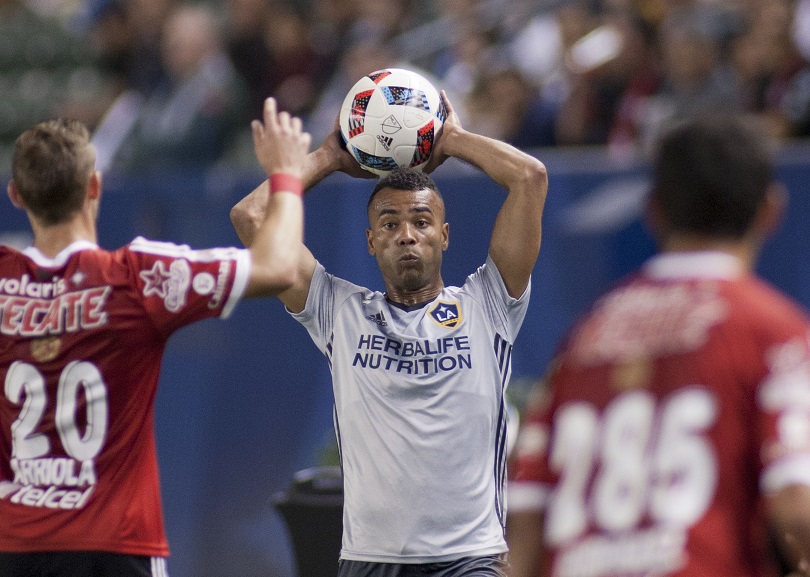
Robert Pires
He eventually recovered to become an important part of a Villarreal midfield which also contained Juan Roman Riquelme and Santi Cazorla
Although it was Lehmann who was shown the red card, Pires was the real victim of the goalkeeper’s sending off: with Wenger forced into a change, the Gunners boss opted to withdraw the veteran playmaker. Pires was distraught, and subsequently decided to leave the club that summer, joining Villarreal in La Liga.
Pires’ bad luck continued as he suffered a cruciate ligament injury in pre-season, which ruled him out for seven months of his debut campaign, although he eventually recovered to become an important part of a Villarreal midfield which also contained Juan Roman Riquelme and Santi Cazorla.
Retirement beckoned after he was released in 2010, but Aston Villa boss Gerard Houllier handed Pires a brief return to the Premier League in November of that year. Playing in a deep-lying midfield role, he struggled to cope with the pace of top-flight football.
His last professional club was FC Goa in India, who he represented between 2014 and 2015. Once his short-term deal expired, Pires resumed training with the Arsenal squad on an almost daily basis. He's now an official club ambassador and has stated his desire to be installed as the Gunners' Director of Football.
Gilberto Silva
When Thierry Henry departed the following summer, Gilberto was strangely overlooked for the captaincy
The World Cup-winner was often under-appreciated by pundits and fans during his time at Arsenal, and in the wake of the defeat by Barcelona he seemed to become curiously undervalued by Wenger too.
Shortly after the Paris defeat, Gilberto was announced as the club’s new vice-captain. He responded brilliantly to the promotion, finishing 2006/07 with a career-high 11 goals.
However, when Thierry Henry departed the following summer, Gilberto was strangely overlooked for the captaincy. Instead, the role went to William Gallas - and the Brazilian was gradually phased out of the side. By the summer of 2008, he'd been allowed to join Greek side Panathinaikos for a knockdown fee.
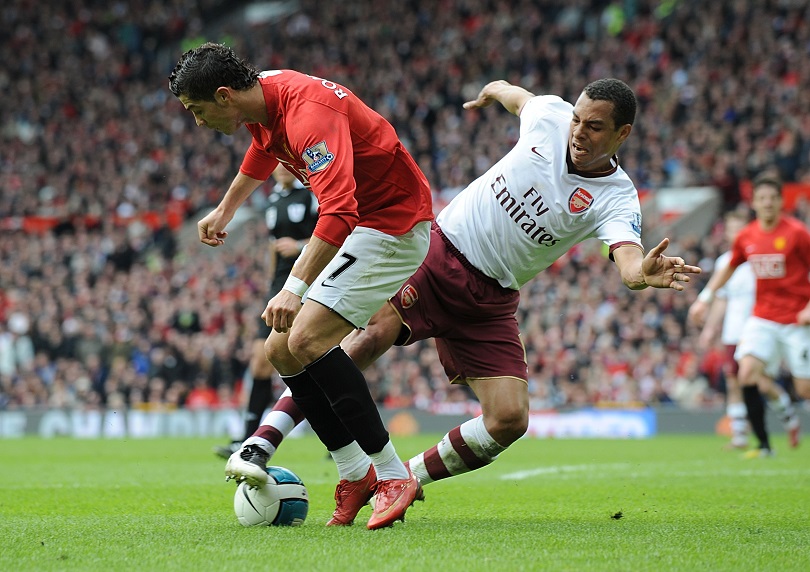
After three successful season in Greece, he returned to Brazil with Gremio and later and Atletico Mineiro. By this stage, he was largely operating as a central defender rather than a holding midfielder. In 2013, he achieved his dream of helping his beloved Atletico to win the Copa Libertadores.
Having retired, Gilberto returned to Panathinaikos as sporting director, but he left the post by mutual consent in December 2016.
Cesc Fabregas
Arsenal faield to support Fabregas with a team befitting his enormous talent and, in 2011, he was duly lured back to Barcelona
The 2005/06 campaign was Fabregas’s first as the true heartbeat of the team. Having sold Patrick Vieira to Juventus, Wenger handed Fabregas the No.4 shirt and prime playmaking responsibilities.
The Spaniard was a revelation, even outplaying Vieira on Arsenal’s route to the final. Just months after the Paris showpiece, he signed a new long-term deal in north London, and in November 2008 succeeded William Gallas as the club captain.
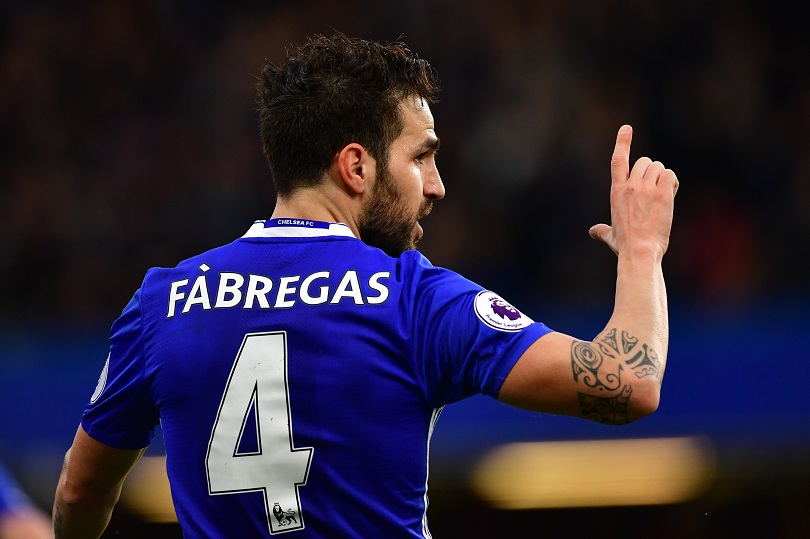
Ultimately, the burden proved too great. Arsenal failed to support Fabregas with a team befitting his enormous talent and, in 2011, he was duly lured back to Barcelona in what appeared a dream move. Fabregas ought to have been the perfect fit at the Camp Nou, but he struggled to displace Xavi and Iniesta and was sold after three years.
Arsenal had not long since signed Mesut Ozil and, despite their ‘first refusal’ clause, Wenger allowed the midfield schemer to join rivals Chelsea. Although no longer an automatic first choice at Stamford Bridge, Fabregas is on course to win a second league title in three years at Chelsea.
Alex Hleb
Hleb has had spells with Birmingham, Wolfsburg, BATE Borisov and Turkish outfit Gencerbiligi
Hleb became the first ever Belarusian to feature in the Champions League final. His first two years with Arsenal were decent, but it was only in 2007/08 that he really came to life. Switched from the wing to a role as a roaming No.10, Hleb’s combination play with Fabregas and Tomas Rosicky helped propel Arsenal into a title challenge.
That pursuit ultimately proved fruitless, but it did earn Hleb a big-money move to Barcelona. He won the treble in his maiden season at the Camp Nou, but struggled to get regular game-time and soon re-joined former club Stuttgart on loan.
That move kick-started the journeyman phase of his career: Hleb has had spells with Birmingham, Wolfsburg, BATE Borisov and Turkish outfit Gencerbiligi, while he's most recently been spotted turning out for FC Krylia Sovetov Samara in the Russian Premier League.
Freddie Ljungberg
Like his 2006 team-mate Pires, Ljungberg was part of the launch of the Indian Super League in 2014
Ljungberg’s post-Arsenal career took in three continents and five different countries. The Swede, who was voted the 11th-best player in the club’s history in 2008, left for West Ham in 2007. but persistent injury problems saw him struggle to make an impact at Upton Park. After just one season in east London, his contract was terminated by mutual consent.
Ljungberg then embarked on his travels, moving to MLS with Seattle Sounders and Chicago Fire, before returning to Britain with Celtic and then having a brief spell with J-League outfit Shimizu S-Pulse.
Like his 2006 team-mate Pires, Ljungberg was part of the launch of the Indian Super League in 2014. He signed for Mumbai City FC, but niggling back problems forced him to cancel his deal after just four appearances.
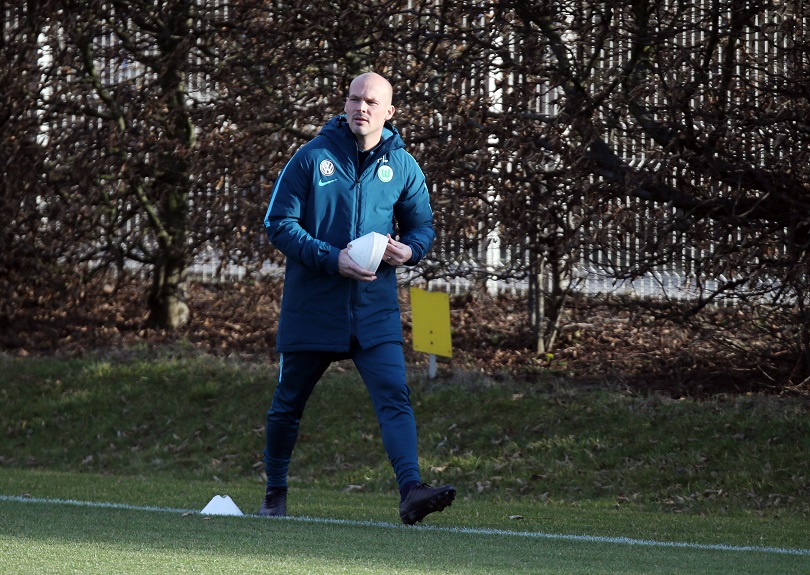
Last year, Ljungberg commenced his coaching career with a spell in charge of Arsenal’s U15s. When the club’s academy director, Andries Jonker, left to take up the reigns at Wolfsburg, he took Ljungberg with him as one of his assistants. Wenger has suggested that the Swede was permitted to go on the understanding that he would eventually return to Arsenal with more experience under his belt.
Thierry Henry
The manner of the defeat seemed to reignite Henry’s passion for the Gunners; in a passionate post-match interview, he declared his intention to remain in north London
Many pundits had assumed that the 2006 final would be Henry’s last game for Arsenal. After all, he'd sat in the Highbury centre-circle taking in the scene with Cole and Pires at the end of the league campaign, and the latter pair both departed in the summer.
However, the manner of the defeat seemed to reignite Henry’s passion for the Gunners. In a passionate post-match interview, he declared his intention to remain in north London. His final season with Arsenal was dogged by injury problems, though, and in June 2007 he joined Barcelona.
After a successful spell at the Camp Nou, Henry moved to the MLS with New York Red Bulls. Four years there - including a brief but brilliant loan spell back at Arsenal - ended with Henry choosing to take up a lucrative role as a pundit with Sky Sports.
The Frenchman has had a couple of coaching posts since his retirement. He first worked with the Arsenal U18s until Wenger decided that his Sky job represented a conflict of interest, and he's now serving as Roberto Martinez’s assistant with the Belgium national team.
Manuel Almunia (sub)
The discovery of a rare heart condition during his medical at Cagliari prompted his immediate retirement
Almunia was cited by many as the man at fault for Arsenal’s defeat in Paris, after the substitute stopper let in two late goals at his near post.
That wasn’t enough to derail his Arsenal career, though, as the Spaniard went on to displace Lehmann as No.1 midway through the 2007/08 campaign. He was released after eight years with the Gunners in 2012, and then joined Championship club Watford on a one-year deal.
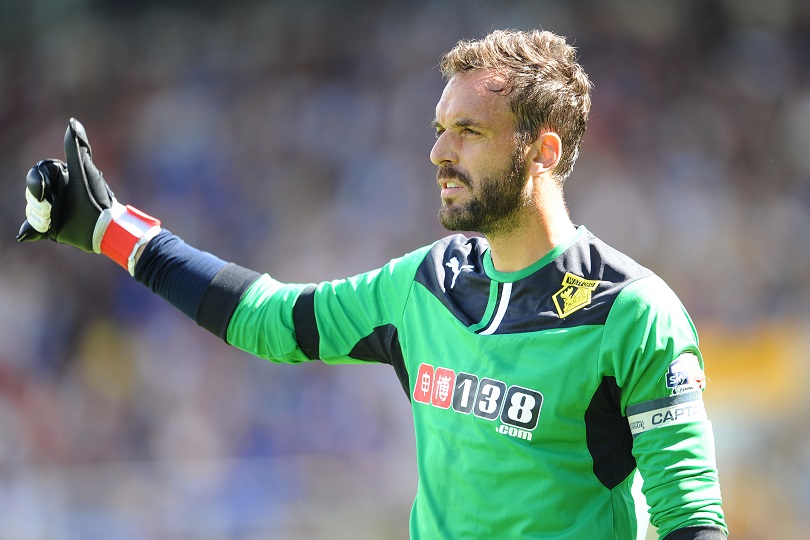
Almunia ended up staying at Vicarage Road for two seasons, before he extended his career by signing for Serie A side Cagliari in 2014. However, the discovery of a rare heart condition during his medical prompted his immediate retirement.
Since then, Almunia has been working as a goalkeeping coach for Arabian Gulf League outfit Al Jazira.
Mathieu Flamini (sub)
He's struggled to make an impression at Selhurst Park, though, and is widely expected to be released this summer
Remarkably, Flamini is the fourth player who figured in the final to leave Arsenal before later returning for a second spell. In 2008, the Frenchman joined Milan after his Gunners contract expired, but a successful trial period five years later saw Wenger re-sign the tough-tackling midfielder.
After three more years at the Emirates, Flamini moved across London to his current club, Crystal Palace. He's struggled to make an impression at Selhurst Park, though, and is widely expected to be released this summer.
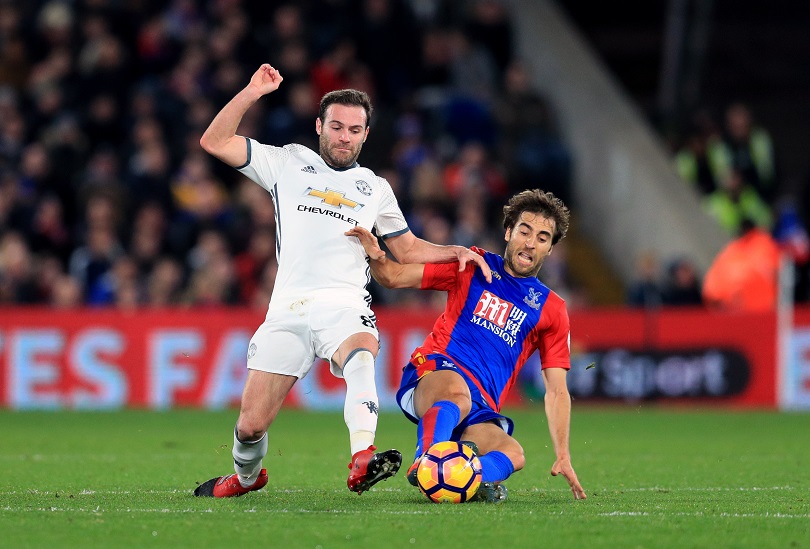
Jose Antonio Reyes (sub)
Back at his hometown club Sevilla, he won the Europa League in three successive seasons
Once Arsenal’s record signing, Reyes ultimately proved to be something of a flop. The summer following the 2006 final, he joined Real Madrid on loan in a swap deal with Julio Baptista; neither player fared particularly well at their temporary club, and Reyes went on to join Atletico Madrid permanently in 2007. After four years at the Vicente Calderon (which included a loan spell with Benfica), the winger returned to Sevilla.
Back at his hometown club, he won the Europa League in three successive seasons. Reyes is currently stationed at Espanyol, and scored his first league goal in a 3-1 win over Granda in January 2017.
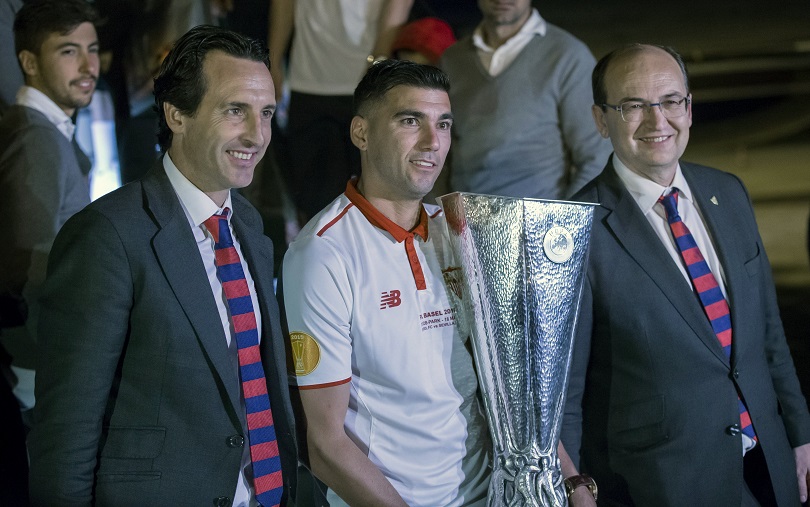
Arsene Wenger
Almost 11 years on, Wenger remains in the dugout at Arsenal. The Champions League final came to represent a turning point for the Gunners boss, who wouldn't win a trophy for another eight years.
Although he has lifted the FA Cup twice in the last four years, the Arsenal fans’ patience with their long-serving manager was worn thin. With his contract due to expire this summer, he could be on the verge of ending his 20-year reign in north London.
Wenger insists he wants to continue coaching, so if he does leave Arsenal he may well take up a position with a new club in 2017/18.
